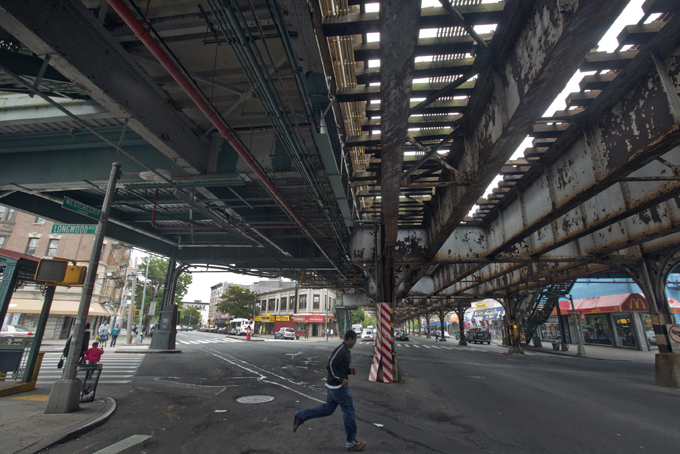
by Verena Dobnik
NEW YORK (AP) — A company that promised sightseer tours to the Bronx that included a New York City “ghetto” has stopped the bus rides under fire from an outraged neighborhood.
Real Bronx Tours, which took mostly European tourists from Manhattan to see life in the South Bronx “from a safe distance,” issued a statement this week saying it would immediately cease all tours there.
Three times a week, the $45 bus ride took visitors past food-pantry lines, a housing project and a park a guide described as a pickpocket hangout.
Tourists were told they’d get a look at the Bronx that reflects one of the darkest chapters of the city’s history, the 1970s and ’80s, when the tour website said “this borough was notorious for drugs, gangs, crime and murders.”
The Bronx lost hundreds of buildings to fires intentionally set by landlords to collect insurance money; hence the phrase “the Bronx is burning.”
It was the grittiest part of the city’s poorest borough.
Residents say the tours are a misrepresentation of the area that former Secretary of State Colin Powell and U.S. Supreme Court Justice Sonia Sotomayor lived in as children.
“Those days are over, the Bronx is being rebuilt, it’s rising again,” said Bronx resident and Grammy-nominated musician Bobby Sanabria.
On Monday, Borough President Ruben Diaz Jr. and City Councilwoman Melissa Mark-Viverito sent an open letter to the company owner, Michael Myers, saying they were “sickened by the despicable way” the borough was being portrayed to outsiders.
“We strongly urge you to stop profiting off of a tour that misrepresents the Bronx as a haven for poverty and crime, while mocking everything from our landmarks to the less fortunate members of our community who are availing themselves of food assistance programs.”
The tour company did not respond to calls and emails requesting comment. It was not clear whether they would resume any of their tours.
Other companies in the city still offer regular guided trips to the Bronx.
Three weeks ago, NYC & Company, the city’s official tourism bureau, launched a promotion of the South Bronx as “one of our safest, most exciting boroughs,” with highlights including “unique” Art Deco architecture and the Yankees.
Real Bronx Tours has been booted from its membership list as a result of the language they’ve been using, NYC & Company spokeswoman Kimberly Spell said.
Elena Martinez, an anthropologist and Bronx resident, offers visitors walks through the same neighborhood that was on Real Bronx Tours’ itinerary.
The human struggles on these still gritty streets have produced urban styles and sounds copied around the world, from hip hop music and outdoor murals to clothing.
“Many young Europeans come here as a pilgrimage,” Martinez said. “This was the incubator for hip-hop, salsa, jazz, Afro-Cuban music, R&B… “
She points to theaters, lavish dance halls and clubs where salsa came alive, along with some of the biggest names in music. Sanabria, a famed drummer, says he comes from a borough “that has an incredible, majestic music culture.”
And although many of the buildings now house stores and offices, or were demolished or burned down, new ones mingle with restored historic ones “and people are helping to bring the neighborhood back,” Martinez said.
“We’ve had enough of the gawkers who come to ghettoize us,” says Al Quinones, caretaker of a community garden that features a stone outdoor amphitheater. “Their timing was bad. The Bronx is not burning, not now! Now, it’s resurgence.”
On the door to his shack on the grounds is a sign that reads: “Don’t Dump on the Bronx.”
They’ve named their campaign “Bronx Rising.”